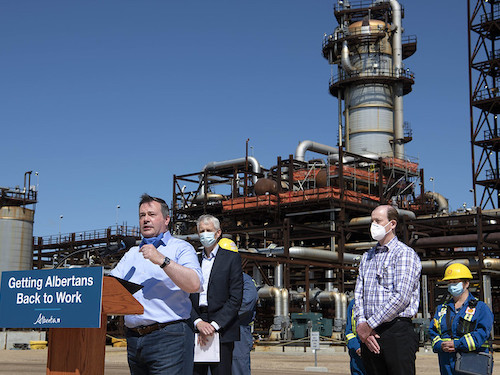“Congratulations to Shell and its joint venture partners for reaching this historic milestone,” Premier Jason Kenney enthused at the time.
Despite the five megatonnes captured, the facility “has emitted a further 7.5 million tonnes of climate-polluting gases during the same time,” the equivalent of 1.2 million internal combustion cars per year.
Global Witness’s analysis concludes that Quest captured just 48% of the emissions from hydrogen production at its Scotford bitumen upgrader and refinery—far less than the 90% standard promised by fossil executives and lobbyists.
“They create the impression the hydrogen plant is less damaging for the climate than is actually the case, while Shell’s promotional materials give no sense of the proportion of carbon dioxide emitted” by Quest.
On Friday, more than 400 climate scientists and other academics wrote to Deputy Prime Minister and Finance Minister Chrystia Freeland urging her to rethink the plan.
“Deploying CCUS at any climate-relevant scale, carried out within the short time frame we have to avert climate catastrophe without posing substantial risks to communities on the front lines of the buildout, is a pipe dream,” declared the group of signatories led by Dr.
Late last week, Freeland spokesperson Adrienne Vaupshas told The Canadian Press that “consultations with the industry and other stakeholders with respect to the design of this CCUS measure have been positive and productive”.
Wilkinson’s department, Natural Resources Canada, isn’t commenting on the Global Witness report while it’s under review.
